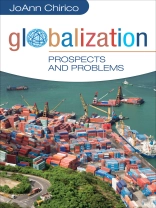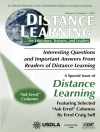This groundbreaking text on globalization provides a comprehensive and enlightening overview of globalization issues and topics. Emphasizing the theory and methods that social scientists employ to study globalization, the text reveals how macro globalization processes impact individual lives—from the spread of scientific discourse to which jobs are more or less likely to be offshored. The author presents a clear image of ‘the big globalization picture’ by skillfully exploring, piece by piece, a myriad of globalization topics, debates, theories, and empirical data. Compelling chapters on theory, global civil society, democracy, cities, religion, institutions (sports, education, and health care), along with three chapters on global challenges, help readers develop a broad understanding of key topics and issues. Throughout the text, the author encourages readers to relate their personal experiences to globalization processes, allowing for a more meaningful and relevant learning experience.
Cuprins
Chapter One: The World Has Gone Global
Chapter Two: Studying Globalization
Chapter Three: Setting the Stage: Foundations of Globalization
Waves of Nationhood
Early Waves of Economic Globalization
Neo-Colonialism and Cold War Strategic Advantage
The Contemporary Period of Nation Building
Shaping the Modern State
Early Globalization of Liberalism
Establishing International Law and Organization
Chapter Four: Making the Global Economy
Post WWII Waves of Economic Globalization
Shaping a New Wave
Globalization as Transitioning Industrial Sectors
Globalization as Outsourcing and Offshoring
Globalization as Trade in Labor
Growing Economic Inequalities: Within and Among Societies
The Global Economic Crisis
The View from the World Social Forum: Civil Society Reports
The View from the Group of 20
The Debt Crisis
The Circumstances of Globalization
Shaping Globalization: The Possibility of a New Order?
Questions, Investigations, and Resources
Chapter Five: Forging a Global Civil Society
Defining Civil Society
Emergence of Global Civil Society
The Challenge of Democracy in Global Civil Society
Global Civil Society: Interacting Layers of Governance
Civil Society Case Studies
Case Study: Treaty to Ban Landmines
Case Study: The Environmental Regime
The Human Rights Regime
The Global Field
Questions, Investigations, and Resources
Chapter Six: Who Gets What, When and How: Global Governance
Propositions for Global Governance
Summary
Questions, Investigations, and Resources
Chapter Seven: Globalizing Political Culture and State Governance
Globalization of Normative Criteria for Governance
Wave Effects in Globalization
Questions, Investigations, and Resources
Chapter Eight: Trends and Transitions in Democracy
2011: A New Democratic Wave?
The Development of Democracy around the World
Questions, Investigations, and Resources
Chapter Nine: Globalizing Culture: Change and Continuity
Conversion and Divergence in Globalization
Global Culture: Compromise and Clash
Cultural Flows Emerging from Global Life
Summaru
Questions, Investigations
Chapter Ten: Globalization and Everyday Life
Education
Global Patterns of Health and Health Care
Sports
Questions and Investigations
Chapter Eleven: Religion: Conflict and Compromise
Chapter Twelve: Transborder Threats to Well-Being: Inequality and Migration
Transborder Threats to Wellbeing: Inequality and Migration
Risk and Uncertainty
Inequality: The Global Pyramid
Three Case Studies to Alleviate Poverty
Migration
Questions and Investigations
Chapter Thirteen: Transborder Threats to Human Well-Being: Violent Conflict and Crime
The Challege of Violent Conflict
Peace Making and Peace Building
Transnational Organized Crime (TOC)
Responding to Risks
Questions, Investigations, and Resources
Chapter Fourteen: Transborder Threats to Human Well-Being: Food and the Environment
A World of Contrast: Starving on a Planet of Plenty
Threats to the Natural Environment
Questions, Investigations, and Resources
Chapter Fifteen: Global Trajectories: The City
Contemporary Cities
Cities and the Qualities of Life
Innovative Approaches to City Life
Questions and Investigations
Despre autor
Jo Ann Chirico, emerita, received her Ph.D. in sociology from the University of Pittsburgh.While originally a doctoral candidate in education, she found that sociology provided the theoreticaltools to analyze the problems she investigated—the coincidence of the global rise ofboth progressive and fundamentalist movements in education, religion, and other dimensions ofsocial life. Intrigued by Emile Durkheim’s pronouncement that individual differentiation wouldproceed to such an extent that all we ultimately would have in common was our humanity, shebegan her study of globalization—the integration of humanity into a social order.Most of her career was at the Beaver campus of Pennsylvania State University, where sheemphasized the importance of research and evidence, the global perspective, and civic engagementin her classes. She has presented workshops on internationalizing the curriculum andengaging students in service learning at conferences over the years.Her previous publications for SAGE include Sociological Research Exercises for the Global Age, a lab manual of mini research exercises for introductory sociology courses, and Globalization:Prospects and Problems.












